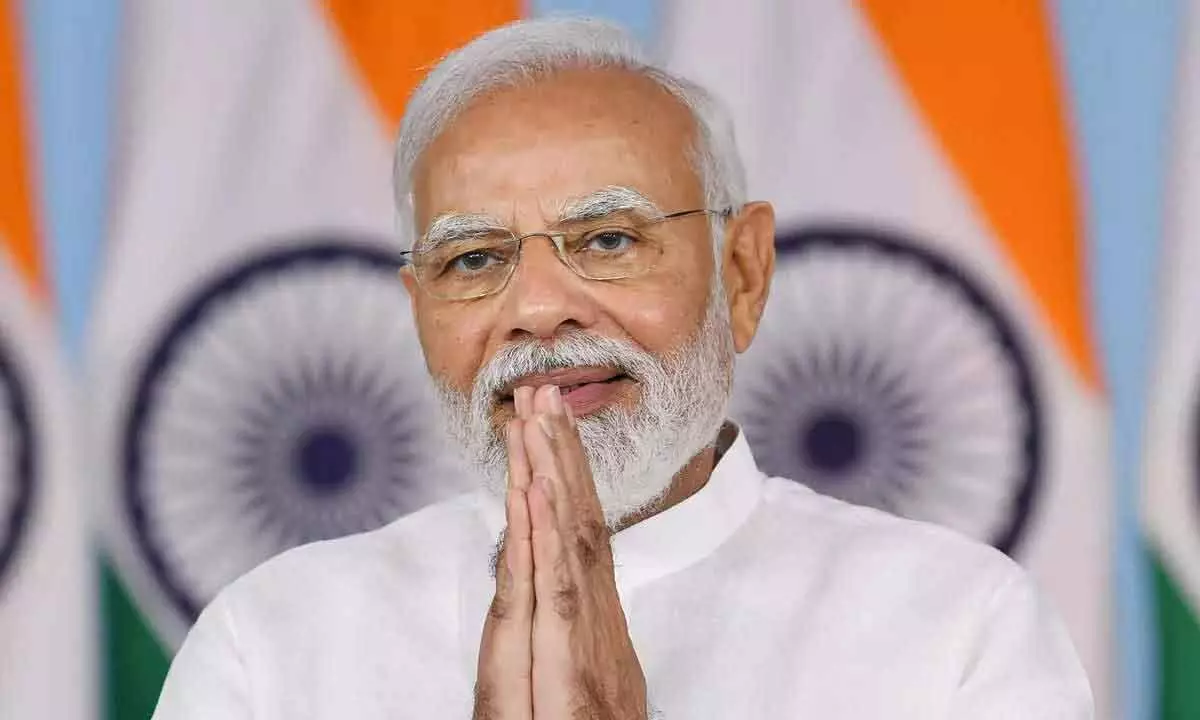Global funds give a thumbs-up to Modi’s economic policy
image for illustrative purpose

Just as troubles come in droves, glad tidings can also be overwhelming. This has been a good week for Narendra Modi, both as Prime Minister and as a politicianr. Soon after the pran-pratishtha ceremony at Ayodhya was welcomed rapturously by the Hindu community all over the country, brightening his party’s prospects in the ensuing general elections, comes the news that global funds are enthusiastically buying India’s sovereign bonds. Bloomberg reported, “Global funds are snapping up India’s sovereign bonds ahead of the country’s addition to global debt indexes and traders expect them to be a key pillar of demand for the near-record government borrowing in the coming fiscal year.”
HSBC Mutual Fund also made a similar prediction: The Indian government bonds are on course to becoming global index players in 2024, with the potential for a $100-billion inflow into the Indian markets through strategic allocations over the next three-five years. All these forecasts are a thumbs-up for Modi’s economic policy, which can be summarized in infrastructure building, fiscal conservatism, and targeted welfare measures.
The Bloomberg survey pointed out, “With Modi widely expected to win a third term, the fiscal deficit is seen narrowing to 5.4 per cent from an estimated 5.9 per cent in the current year”. However, global finance’s interest is not new. In March last year, Air India had ordered 470 aircraft, 220 Boeing and 250 Airbus planes, at a total cost of $70 billion. In June, IndiGo placed a firm $50-billion order for 500 A320 Family aircraft. This could not have been possible without the approval of the big players of Wall Street. The big players’ interest has only grown in the last few months. Since JPMorgan Chase & Co’s September’s inclusion announcement, global funds have pumped in over Rs. 50,000 into index-eligible debt. According to HSBC, sovereign wealth funds, central banks, and major institutional investors like endowments and pension funds are poised to closely monitor and acquaint themselves with the Indian bond markets for their emerging market allocations. Infrastructure funding may become more accessible and perhaps less expensive, but it will be dependent on various factors, most of which will be related to governance and the pace of reforms in India. The government has to ensure that its cultural agenda—especially regressive issues like promotion of Hindi—does not adversely affect the country’s economic policy.
Excessive emphasis on religion, and the politics oriented around it, can become too intoxicating for politicians. It can also yield good electoral dividends in the short term, but in the long run it invariably hurts the economic prospects of a country. The Modi regime must be aware of this pitfall; it should look beyond Ayodhya. Moreover, reforms are still a work in progress. While much of the work has been done at the Central level, there is a great deal that needs to be carried out in states. Further, economic liberalization must accompany administrative, police and judicial reforms for these are urgently needed to make the lives of common people better. The government must be very cautious about foreign investors, both direct and portfolio, as they are a fastidious lot, especially now, when they have begun showing greatwe interest in India.

